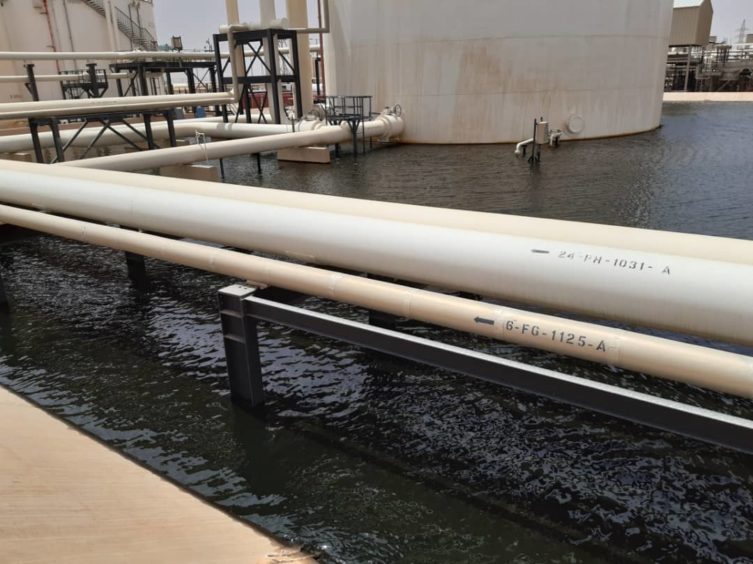
An attempt to lift force majeure at the Es Sider port, allowing oil exports to resume, has failed with local armed forces refusing to allow this to go ahead.
The National Oil Corp. (NOC) said it was ready to lift the stoppage and allow a tanker to load. It would take crude from storage, the company said.
However, the Petroleum Facilities Guard (PFG) refused to allow the Delta Ocean VLCC to enter the port, NOC reported.
“NOC is ready to restart oil exports immediately,” said NOC’s chairman Mustafa Sanalla. “NOC reaffirms its call for all Libyan parties to facilitate its work, in line with the clear Libyan and international consensus that the NOC should lift force majeure and resume its vital mission. The NOC is consulting with all parties to find a way forward that will ensure the safety of NOC facilities and personnel.”
The port is to the east of the city of Sirte, in the heart of the country’s oil crescent.
NOC asked “foreign mercenaries and armed groups” to leave Es Sider immediately. The company said there was an “urgent need” to restart production in order to halt the damage to Libya’s infrastructure and prevent “further deterioration and collapse”.
Es Sider receives crude from the Waha concession. NOC operates the block and has a 59.18% stake. Total has 16.33%, ConocoPhillips 16.33% and Hess 8.16%. These companies are also responsible for managing Es Sider.
Total entered Waha in December 2019, at which point the area was producing 350,000 barrels of oil equivalent per day. The concession covers around 53,000 square km.
Group talk
The Economic Working Group met on July 6 and released a statement the following day. The group expressed their “full support” for NOC and the plans to lift force majeure across Libya.
The group includes many of the major external players in Libya, such as Turkey and the United Arab Emirates. The participants met under the auspices of the Berlin conference, which attempted to broker a peace deal between the Libyan National Army (LNA) and the Government of National Accord (GNA).
NOC’s chairman also participated in the group call.
The statement welcomed Sanalla’s comments on plans to restore oil operations and prevent the further decay of infrastructure.
“Allowing the NOC to resume its vital work, on the basis of transparency and a firm commitment to ensure no illicit use of revenues, will create the conditions for a common understanding among Libyans on an equitable distribution of oil and gas revenues,” it said.
Long-term impact
The group called on the United Nations Support Mission in Libya (UNSMIL) to step up its efforts in the country in order to support a consensus and promote financial transparency.
Libya had been producing 1.22 million bpd at the start of the year with the aim of reaching 2.1mn bpd by 2024. Sanalla, in a statement from NOC yesterday, said the company had been forced to cut its estimate to 650,000 bpd in 2022.
“Some of the damage we have suffered is permanent and can never be repaired. Producing oil reservoirs that are shut down suddenly undergo mechanical, structural, chemical and even microbiological changes. These changes can result in early water production and death of oil wells,” he said.
Water encroachment is an increasing problem and some wells will never restart. The government has also reduced the company’s budget, to one quarter of the amount requested.
“We will have to work over between 160 and 260 wells, at a cost of between $50 million and $100 million. The major pipeline network, covering more than 6,760 km, as well as surface equipment will require a huge budget for maintenance and repairs. The total will run to the billions of dinars,” said Sanalla.
Updated at 3 pm with NOC statement that the PFG had prevented loading of the VLCC.
